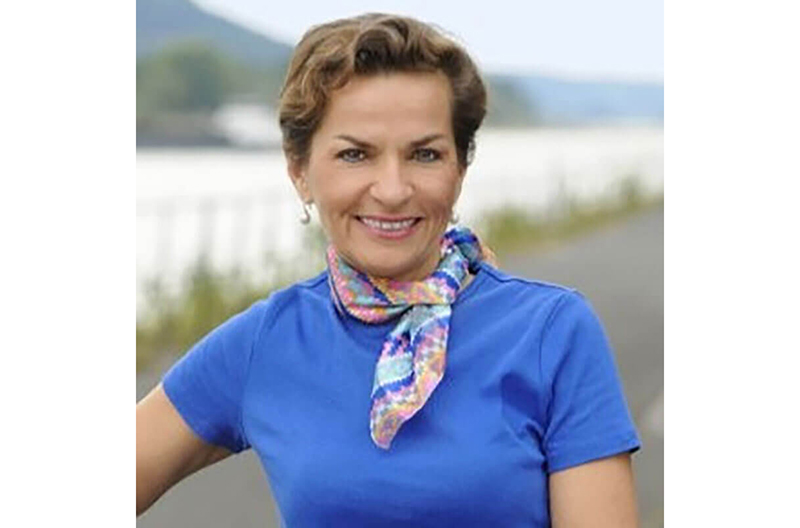Christiana Figueres has joined food tech startup Impossible Foods Inc.’s board of directors.
An internationally renowned leader on global climate change policy, Figueres has decades of experience in collaborative diplomacy. She is currently a founding partner at the Global Optimism Group, which works to build a resilient mindset around the climate crisis and inspires leaders from governments, the private sector, civil society and grassroots groups to join the cause.
Previously, Figueres was the executive secretary of the United Nations Framework Convention on Climate Change (UNFCCC) from 2010 to 2016, where she rebuilt global climate change negotiations after the failed Copenhagen conference of 2009, and brought together governments, corporations, activists, financial institutions and NGOs to deliver the unprecedented Paris Agreement of 2015.
“I’ve devoted my career to fighting climate change with optimism and collaboration and joining the board of Impossible Foods enables me to amplify my lifelong environmental advocacy,” said Figueres. “The company’s innovative and market-driven approach empowers people to be part of the solution to our climate crisis.”
In addition to Figueres, Impossible Foods’ board members include:
- Patrick O. Brown, Impossible Foods’ CEO, founder and chairman of the board;
- Fedele Bauccio, CEO and cofounder of Bon Appétit Management Co.;
- Samir Kaul, founding partner and managing director at Khosla Ventures;
- John Marren, senior managing director, North America, of Singapore-based global investment company Temasek;
- Tal Ronnen, founder and chef of Los Angeles-based Crossroads Kitchen and author of the New York Times bestseller “The Conscious Cook;”
- Bart Swanson, advisor at Horizons Ventures, the Hong Kong-based private investment fund of Li Ka-Shing;
- Vanessa Wittman, CFO of Glossier; and
- Mary Beth Laughton, president and CEO of Athleta.
“Christiana has tremendous influence as a global leader in the movement to avert catastrophic climate change,” Brown said. “We are thrilled to have her guidance as we pursue our essential environmental mission, especially as we accelerate our international expansion. Her experience and insights into working with the global community on climate change solutions will be invaluable in our fight to save the planet.”
Figueres’ appointment to the board comes at a critical moment in Impossible Foods’ growth trajectory and highlights the company’s focus on aligning business growth to positive climate outcomes. The Redwood City, California-based startup continues to dramatically expand its retail presence, global footprint, product portfolio and team.
One year ago, the company’s flagship Impossible Burger was available in about 150 grocery stores. Now it’s in about 17,000 stores in all 50 states – a more than 100x increase in 2020 alone. Impossible Burger can now be found in Walmart Supercenter and Neighborhood Market locations across the U.S., as well as Kroger, Albertsons, Fred Meyer, Gelson’s, Publix, Safeway, Trader Joe’s, Vons, Wegmans and many others.
In July, Impossible Foods launched Impossible Sausage Made From Plants – the company’s first new product since the 2016 launch of its flagship Impossible Burger. Impossible Sausage is already on the menu at more than 15,000 restaurants globally.
In September, Impossible Burger debuted in Canada at the award-winning restaurants of world-class chefs, and shortly after in 600 Sobeys locations in Canada. The same month, Impossible Sausage Made from Plants debuted in Asia.
In October, the company announced plans to double the size of its research and development team in the next year, to further expand its multifaceted technology platform and accelerate next-generation product development.
Impossible Foods’ scalable approach to manufacturing has allowed the company to dramatically increase production capacity to support surging demand for Impossible Burger and Impossible Sausage over the last year. The company’s hypergrowth has profound implications for the environment and enables Impossible Foods to achieve economies of scale. Earlier this month, as part of its aim to compete against animal-derived meat in every way that matters to consumers, including affordability, Impossible Foods lowered the price of Impossible Burger for U.S. foodservice distributors by approximately 15 percent on average. Driving down prices is key to the company’s mission of eliminating the need for animal agriculture by 2035.
Impossible Burger debuted in 2016 at some of America’s most acclaimed restaurants. It soon became a popular menu item at the world-class establishments of chefs such as David Chang, Traci Des Jardins, Chris Cosentino, Frédéric Morin, Mark McEwan, Matty Matheson, David Myers, Gordon Ramsay, Wolfgang Puck and May Chow. Impossible Burger was named top plant-based burger by The New York Times and received the Food and Beverage (FABI) Award from the National Restaurant Association.
Impossible Burger has as much bioavailable iron and protein as a comparable serving of ground beef from cows and has macronutrients like fiber and micronutrients like folate, B12, thiamin and iron. The quarter-pound patty has 0 mg cholesterol, 14 grams of total fat, 8 grams of saturated fat and 240 calories; the third-pound patty has 0 mg cholesterol, 19 grams of total fat, 11 grams of saturated fat and 320 calories.
Impossible Burger contains no animal hormones or antibiotics and is gluten-free certified. It uses 96 percent less land, 87 percent less water and 89 percent less greenhouse gas emissions to produce compared to conventional beef from cows – environmental benefits that also translate to economic efficiencies.

